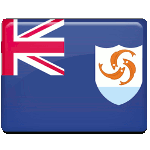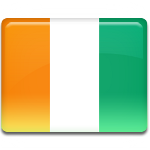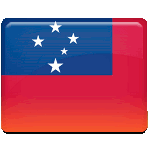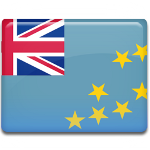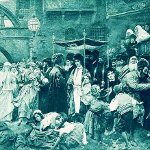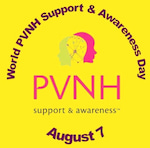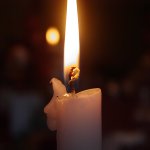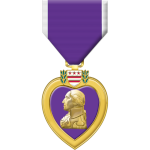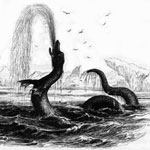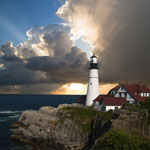Holidays Calendar for August 7, 2017
Battle of Boyacá Day is annually observed in Colombia on August 7. This public holiday marks the day, when Colombia (then New Granada) gained definitive independence from Spain.
The whole week in August is full of holidays in Anguilla. Constitution Day is one of them. This holiday has no fixed date. However, the day of its celebration is appointed annually to mark the closure of the Carnival.
Independence Day is the national holiday of Ivory Coast. It is celebrated on August 7, commemorating the day in 1960 when the country declared its independence from France.
The first Monday in August is Civic Holiday in most Canadian provinces. This holiday is known under different names in many provinces and municipalities.
Labor Day is one of the public holidays in Samoa. It's annually observed on the first Monday in August.
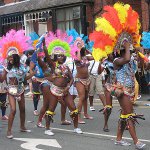 Public Holidays →
Anguilla,
Antigua and Barbuda,
Barbados,
British Virgin Islands,
Dominica,
Montserrat,
Saint Kitts and Nevis,
Turks and Caicos Islands,
Guyana,
Grenada,
Bahamas
Public Holidays →
Anguilla,
Antigua and Barbuda,
Barbados,
British Virgin Islands,
Dominica,
Montserrat,
Saint Kitts and Nevis,
Turks and Caicos Islands,
Guyana,
Grenada,
Bahamas
Emancipation Day (August Monday)
Emancipation Day is a common holiday for the former colonies of Great Britain and Guyana. This day is celebrated on the first Monday in August. At some point the holiday became the first day of the traditional Carnival and adopted the name of August Monday.
People across Zambia celebrate Farmers' Day on the first Monday in August. Zambians depend on farming very much, that is why this holiday praises their work.
The first Monday in August is National Childrens' Day in Tuvalu. This public holiday is called in Tuvalu Aso Tamaliki.
Iceland annually celebrates Commerce Day on the first Monday in August. This holiday appeared in 1894, and the first observation took place in Reykjavik.
Raksha Bandhan is an ancient Hindu festival, that celebrates love between sisters and brothers. The date of the festival falls on the full moon of Shravana month of the Hindu lunisolar calendar. This festival is celebrated in India and Nepal, as well as in other countries, where Hindus live.
Tu b'Av is a minor Jewish holiday celebrated on the 15th day of the Hebrew month of Av. In modern Israel it has become a holiday of love, somewhat similar to Valentine's Day.
World PVNH Disorder Awareness Day, also known as World PVNH Day, is observed annually on August 7. It was created to raise awareness of periventricular nodular heterotopia, a brain malformation that typically causes seizures.
Aged Care Employee Day in Australia is observed on August 7. It is the holiday of all aged care professionals who work in nursing homes and other residential aged care institutions, as well as provide in-home aged care services.
Although many people associate the word “Assyrian” with an ancient empire in Mesopotamia, Assyrians are not an extinct people. The present-day Assyrians inhabit parts of Iraq, Turkey, Iran and Syria, and also have a large diaspora across the world. Throughout the XX century they have been victims of massacres and genocide. To commemorate their fallen brothers and sisters, Assyrians observe Martyrs Day on August 7.
National Purple Heart Day, also known as Purple Heart Day, Purple Heart Appreciation Day and Purple Heart Recognition Day, is observed in the United States every year. It is dedicated to a U.S. military decoration awarded to those who were wounded or killed while serving.
August 7 is National Raspberries N' Cream Day in the United States. This food holiday is devoted to the delightful combination of ripe, juicy, tender raspberries and heavy, delicious cream.
If you’re a mythology fan, don’t miss your chance to celebrate National Sea Serpent Day on August 7. It commemorates a famous sea serpent sighting by the crew of HMS Daedalus that occurred in August 1868.
National Lighthouse Day is celebrated annually on August 7. It was created by the United States Congress in 1989 to commemorate the 200th anniversary of an act that provided for the establishment and maintenance of lighthouses, beacons, buoys and public piers.
Festivals for August 7, 2017
- Medieval Week on Gotland in Visby, Sweden
- Sendai Tanabata Festival in Sendai, Japan
- Folklorama in Winnipeg, Canada
- Washington Midsummer Renaissance Faire in Bonney Lake, USA
- New York Renaissance Faire in Tuxedo, USA
- Pennsylvania Renaissance Faire in Manheim, USA
- Edinburgh Festival Fringe in Edinburgh, United Kingdom
- Royal Edinburgh Military Tattoo in Edinburgh, United Kingdom
- Qingdao International Beer Festival in Qingdao, China
- Just Festival in Edinburgh, United Kingdom
- National Eisteddfod of Wales in Bodedern, United Kingdom
- Sidmouth Folk Festival in Sidmouth, United Kingdom
- Inter-Celtic Festival of Lorient in Lorient, France
- Calgary Fringe Festival in Calgary, Canada
- Cinemalaya Philippine Independent Film Festival in Manila, Philippines
This Day in History
- 2025 Died: Jim Lovell, American astronaut, naval aviator, test pilot, and mechanical engineer. He was the first person to fly into space four times.
- 2024 Died: Jon McBride, American naval officer, test pilot, astronaut and administrator for NASA. He piloted STS-41-G, and would have been commander of STS-61-E had the mission not been canceled.
- 2023 Died: William Friedkin, American film, television and opera director, producer, and screenwriter who was closely identified with the "New Hollywood" movement of the 1970s.
- 2005 Died: Peter Jennings, Canadian-American journalist and author, the sole anchor of ABC's World News Tonight from 1983 until his death.
- 1998 The United States embassies in Dar es Salaam, Tanzania and Nairobi, Kenya were bombed. Approximately 212 people were killed.
- 1987 Died: Camille Chamoun, Lebanese politician, President of Lebanon from 1952 to 1958. He is regarded as one of the main Christian leaders during most of the Lebanese Civil War.
- 1975 Born: Charlize Theron, South African and American actress and producer. Her notable film credits include The Devil's Advocate, Monster, Mad Max: Fury Road, Atomic Blonde, Tully, and more.
- 1974 Philippe Petit performed a high wire act between the twin towers of the World Trade Center. The wire was stretched at a height of 1,368 ft (417 m).
- 1966 Born: Jimmy Wales, American businessman, best known as one of the co-founders of Wikipedia.
- 1962 Born: Bruno Pelletier, Canadian singer and actor, best known for his roles in the stage musicals Starmania, Notre-Dame de Paris, and Dracula - Entre l'amour et la mort.
- 1960 Born: David Duchovny, American actor, writer, producer and musician. He is best known for his roles as FBI agent Fox Mulder on the television series The X-Files and writer Hank Moody on the television series Californication.
- 1959 American satellite Explorer 6 was launched from the Atlantic Missile Range in Cape Canaveral, Florida. A week later, Explorer 6 took the first photos of Earth from a satellite.
- 1947 Thor Heyerdahl's balsa wood raft, the Kon-Tiki, smashed into the reef at Raroia in the Tuamotu Islands. The journey lasted for 101 days, covering 4,300 miles across the Pacific Ocean.
- 1944 Born: Jack Glover, American actor, known for a range of villainous roles in films and television, including Daniel Clamp in Gremlins 2: The New Batch and Lionel Luthor in Smallville.
- 1942 The Battle of Guadalcanal began. It was the first major offensive by the Allied forces against the Empire of Japan.
- 1941 Died: Rabindranath Tagore, Indian poet, writer, playwright, composer, philosopher, social reformer, and painter of the Bengal Renaissance. He was the first non-European to win the Nobel Prize in Literature.
- 1933 Died: Elinor Ostrom, American economist and academic. Her greatest lifetime achievement was the Nobel Memorial Prize in Economic Sciences for the analysis of economic governance, especially the commons.
- 1933 The Iraqi government ordered a slaughter of over 3,000 Assyrians. The slaughter took place in 63 villages in the Dohuk and Mosul districts in Iraq.
- 1912 Died: François-Alphonse Forel, Swiss physician and scientist who pioneered the study of lakes, and is thus considered the founder and the Father of limnology.
- 1909 Alice Huyler Ramsey and her three friends became the first women to complete a transcontinental car trip. Their trip started in New York and finished in Florida.
- 1904 Born: Ralph Bunche, American political scientist, academic, and diplomat, Nobel Peace Prize laureate for his mediation in Israel in the late 1940s.
- 1877 Born: Ulrich Salchow, Swedish figure skater, a 10-time World figure skating champion. One of the six figure skating jumps was named in his honor since Salchow was the first to land it.
- 1876 Born: Mata Hari, Dutch dancer who was convicted of being a spy. She was executed by a firing squad in France under charges of espionage for Germany during WWI.
- 1864 Died: Li Xiucheng, Chinese general, known as the Loyal King. He led the Taiping Rebellion forces to several victories and is considered to be the most important military leaders of his time.
- 1860 Born: Alan Leo, English astrologer and author, widely considered the father of modern astrology. His works stimulated a revival of astrology in Europe after its decline in the 17th century.
- 1858 The first game of Australian football was played between Melbourne Grammar and Scotch College.
- 1855 Died: Mariano Arista, Mexican general and politician, the 19th President of Mexico. He served in office from January 15, 1851 until being deposed and exiled on January 6, 1853.
- 1848 Died: Jöns Jacob Berzelius, Swedish chemist, considered to be one of the fathers of modern chemistry. He is also known for the discovery and isolation of new elements, cerium and thorium.
- 1834 Died: Joseph Marie Jacquard, French weaver and inventor, an important figure in the development of the earliest programmable loom (now known as the Jacquard loom).
- 1782 George Washington, then-delegate to the First Continental Congress from Virginia, ordered the creation of the Badge of Military Merit to honor soldiers wounded in battle. The Badge was later renamed to a more poetic Purple Heart.
- 1714 The Battle of Gangut was fought between the Swedish Army and Imperial Russian Navy during the Great Northern War. This was the first important victory of the Russian fleet.
- 1635 Died: Friedrich Spee, German Jesuit priest, professor, and poet, best known as a forceful opponent of witch trials.
- 1616 Died: Vincenzo Scamozzi, Italian architect and writer on architecture, active mainly in Vicenza and Republic of Venice. He completed the construction of the Teatro Olimpico.
- 1571 Born: Thomas Lupo, English viol player and composer, one of the principal developers of the repertory for viol consort.

